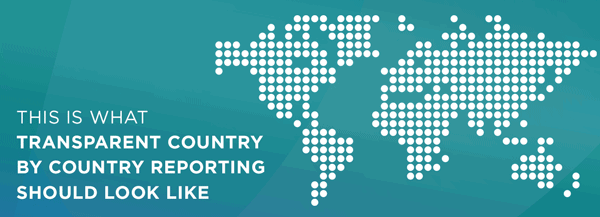Why Deltour verdict must not be forgotten in transparency fight
March 16th, 2017
March 16th, 2017
Antoine Deltour and Raphaël Halet have been tried again. And convicted again.
After losing a trial last year for their role in LuxLeaks, a scandal that exposed secret tax deals concocted between multinational corporations and the government of Luxembourg, the two were re-tried this year (along with journalist Edouard Perrin, who escaped conviction). While the new sentences were reduced from those handed down in the original verdict, the fact that they were even convicted at all is a troubling signal for any would-be whistleblower.
Politicians, civil society and journalists have all spoken out in support of the LuxLeaks whistleblowers, while questioning the motive behind Luxembourg’s relentless prosecution:
Actions of Antoine Deltour & Raphael Halet triggered important EU tax reforms. #Whistleblowers must be protected not convicted! #Luxleaks pic.twitter.com/ryjMaJfiaE
— Greens in the EP (@GreensEP) March 15, 2017
Shame, shame, shame on Luxembourg and its ongoing capitulation to the tax avoidance industry. https://t.co/MsC2sobpmO
— Will Fitzgibbon (@WillFitzgibbon) March 15, 2017
Today #LuxLeaks trial reminds us why we need public country-by-country reporting #CBCR #taxtransparency NOW! pic.twitter.com/j54w11yUTD
— Oxfam EU Advocacy (@OxfamEU) March 15, 2017
Luckily, the selfless acts of transparency were not in vain. Citizens across the EU were outraged by the revelations, first reported on a large scale by the International Consortium of Investigative Journalists and their partner organizations around the globe in late 2014. The investigation showed that in some cases multinationals used sweetheart deals to lower their tax bills to less than one per cent. But the road has been long and bumpy since the initial outrage, with European politicians seemingly taking one step forward, only to take another step back.
In many ways reacting to the public’s displeasure, EU authorities agreed to begin exchanging tax rulings, so that one EU member state would know if another was giving preferential treatment to multinationals to lure their business. Though this was a step towards transparency, that’s all it was. Citizens wouldn’t be privy to the rulings, and the rulings would still only provide a snapshot of a multinational’s full operations.
But the debate around tax avoidance also led to hastened movement on country-by-country reporting, an initiative that would require companies to publish basic financial information, like amount of taxes paid and number of employees, on a country-level. These reports could be extremely useful in detecting corporate tax abuse, so it’s fortunate that the EU has taken up the issue.
But while taking it up, they’ve also watered it down.
There are a few main arguments made by civil society around CBCR disclosures: data must be public, it must include an MNCs operations for the entire globe, and it should include most MNCs, not just the few largest ones.
Though we have a long way to go before a deal is reached on what CBCR will look like in the EU, it’s important to remember that the European Commission’s proposal would not deliver on these crucial points. Rather than require country-by-country reporting for every jurisdiction, the Commission proposal, released last year, would only require a company to file reports on their EU operations, and a designated list of third jurisdictions, still to be decided. It would also only capture the biggest of multinationals, meaning those with turnover in excess of €750 million. This ‘CBCR-lite’ would unfortunately keep most of the world in the dark.

But ahead of trialogue negotiations that will begin later this year between member states, Parliament and Commission, there has been encouraging movement from MEPs, who recently released a draft position. Some individual member states, too, seem to be coming around.
While it’s still unclear where the EU will eventually come down, it’s important to remember that LuxLeaks was a vital catalyst for increased corporate transparency. And without whistleblowers like Deltour and Halet, we likely would not have found out about the secret tax deals in the first place.